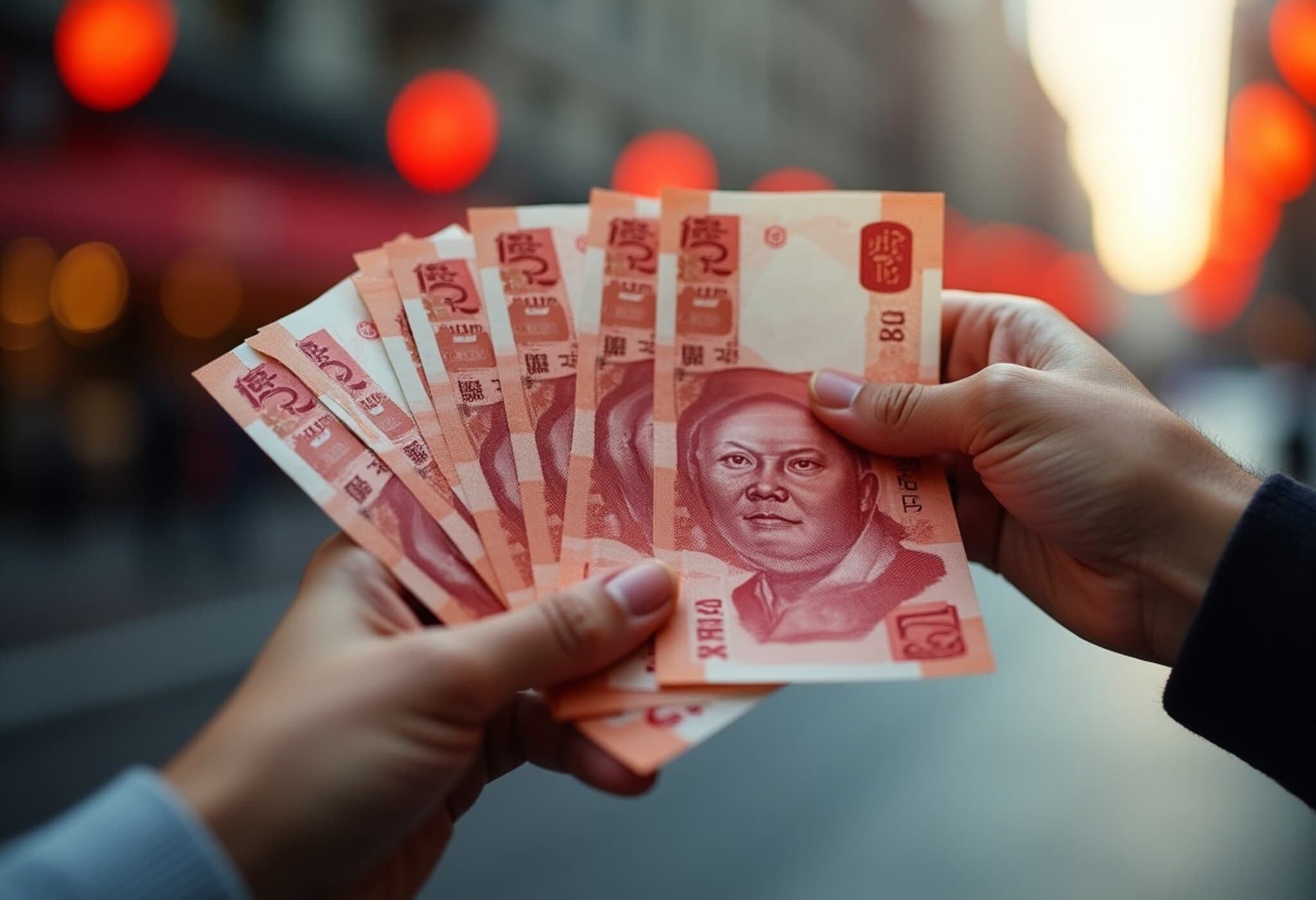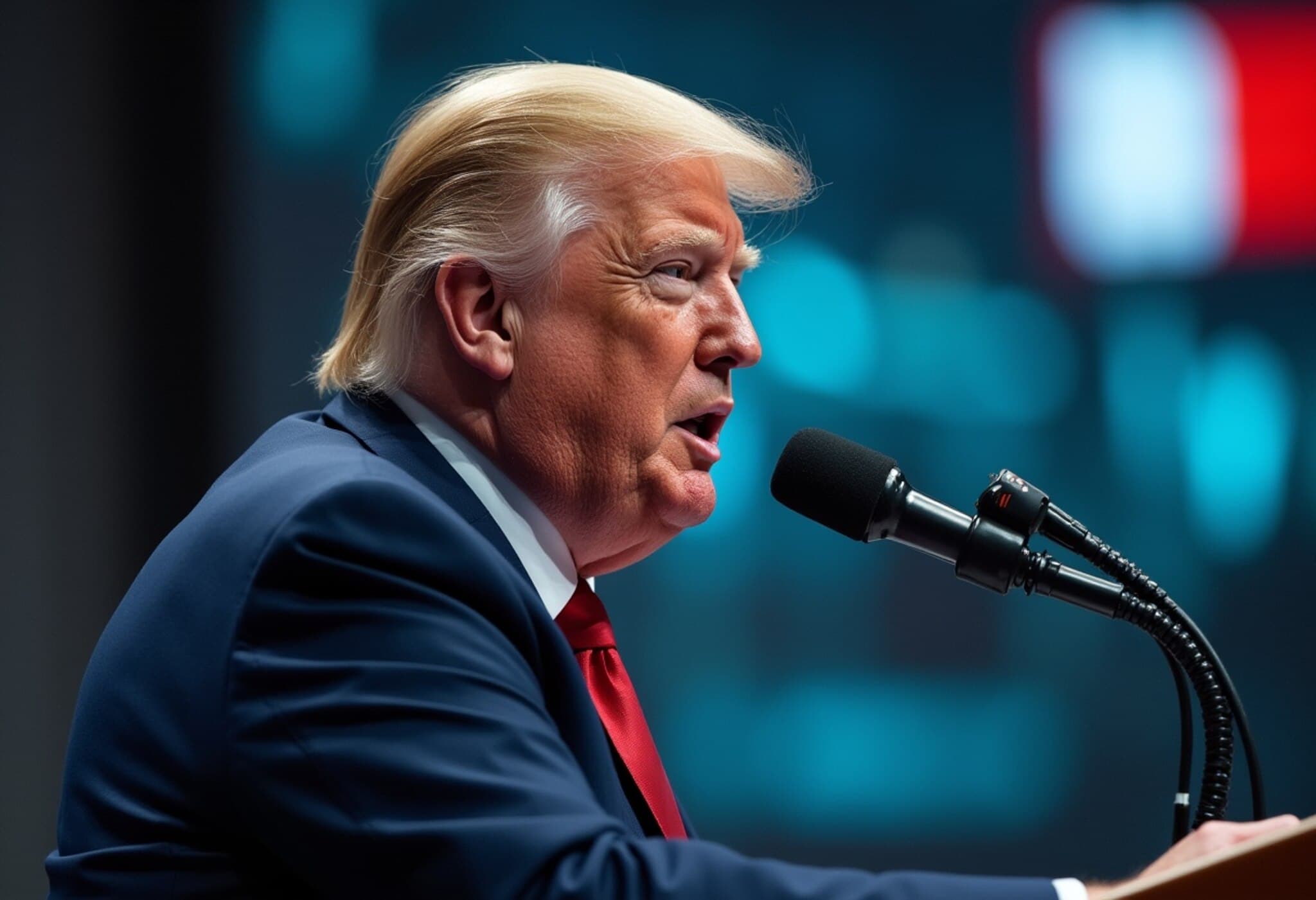European Banking Giants Warn of Euro’s Strength and U.S. Tariff Impact
Europe’s leading financial institutions are raising red flags over the rising euro and the ripple effects of U.S. tariffs on the global investment climate as the second quarter draws to a close. These economic forces are reshaping trade dynamics and investment strategies just as transatlantic tensions threaten to escalate.
Deutsche Bank Highlights Currency Headwinds Despite Profits
Germany’s Deutsche Bank, the continent’s largest lender, announced a second-quarter profit that surpassed expectations. Yet, the bank’s Chief Financial Officer, James von Moltke, emphasized the challenging backdrop created by the euro’s appreciation against the dollar. Speaking to CNBC, von Moltke described the euro’s strength as the key factor influencing their results, particularly affecting their core investment banking unit where results were mixed.
BNP Paribas Sees Growth Amid Complex Conditions
BNP Paribas, Europe’s biggest bank by assets, reported a robust 26.8% year-over-year increase in its fixed income, currencies, and commodities division, despite a fraught environment marked by geopolitical volatility, tariff announcements, and a weakening dollar. Lars Machenil, BNP Paribas’ CFO, explained that while euro strength boosted the cost of converting U.S.-earned income back to Europe, the bank’s global markets responded resiliently.
Euro Gains and U.S. Trade Uncertainty: A Double-Edged Sword
The euro has surged 13.46% against the U.S. dollar so far this year, fueled largely by trade tensions sparked by U.S. President Donald Trump’s tariffs and subsequent policy volatility. This strength creates a paradox for European banks heavily involved in U.S. markets: while their dollar earnings grow in nominal terms, the translation back into euros dampens overall revenues and profits.
The Federal Reserve’s recent decision to hold interest rates steady contrasts with the European Central Bank’s continued accommodative stance, keeping both currencies in flux. These monetary policies create additional layers of uncertainty for cross-border financial activities.
Trade Talks Under Pressure as August Deadline Looms
With an August 1 deadline approaching, negotiations between the European Union and the United States are under intense scrutiny. Failure to reach a trade agreement risks triggering a proposed 30% tariff on EU exports to the U.S., escalating transatlantic economic tensions. This looming deadline has injected a "wait-and-see" mood among corporate clients, as reported by BNP Paribas’ Machenil.
Despite this caution, BNP Paribas maintains an active pipeline in mergers and acquisitions and capital markets activities, reflecting ongoing strategic positioning amid uncertainty. Many companies hesitate to halt financing but remain wary of potential risks, carefully evaluating their next moves.
Italian and Swiss Banks Reflect Varied Reactions
Italy’s UniCredit, the country’s second-largest bank, saw a notable 25% year-on-year increase in second-quarter net profit. The bank’s leadership cited macroeconomic volatility and tariff anxieties as drivers pushing customer activity toward increased trading in Q2.
Similarly, experts at Deutsche Bank caution that while U.S. tariffs may impose a "relatively steep" cost on currency conversions, the effects will differ widely across industries and businesses, highlighting the complex and uneven impact of trade policies on European exporters.
Looking Ahead: More Earnings Reports Expected
As the European earnings season unfolds, market watchers are anticipating results from major players like Barclays and UBS. Their forthcoming reports will provide a clearer picture of how banks are navigating a world of currency fluctuations, geopolitical tensions, and unprecedented trade challenges.
Expert Insight: Navigating Uncertainty
The interplay between currency strength and trade policy underlines a broader strategic challenge for European banks: balancing growth opportunities in the U.S. with exposure to volatile foreign exchange conditions. The euro’s gain against the dollar, while reflecting European economic confidence, poses tangible headwinds for multinational banks reliant on cross-currency earnings.
Moreover, the unresolved trade tensions raise urgent questions for policymakers and corporate leaders about the future of transatlantic economic relations. Will a last-minute agreement ease pressures or will heightened tariffs erode European competitiveness in America’s vast market? These questions resonate beyond banking, touching on the stability of global supply chains, investment flows, and economic recovery trajectories post-pandemic.
Editor’s Note
As European banks grapple with a strengthening euro and the specter of U.S. tariffs, their insights reveal a cautious optimism mixed with uncertainty. The evolving dynamics emphasize the need for agility in financial strategy and underscore how geopolitics can swiftly influence market fundamentals. Observers should watch the upcoming trade negotiations closely, as their outcome will significantly shape not only banking profits but also broader economic ties between Europe and the U.S.
In a world of shifting policies and fluctuating currencies, the financial sector’s ability to adapt may well define the resilience of Europe’s economy in the years to come.












